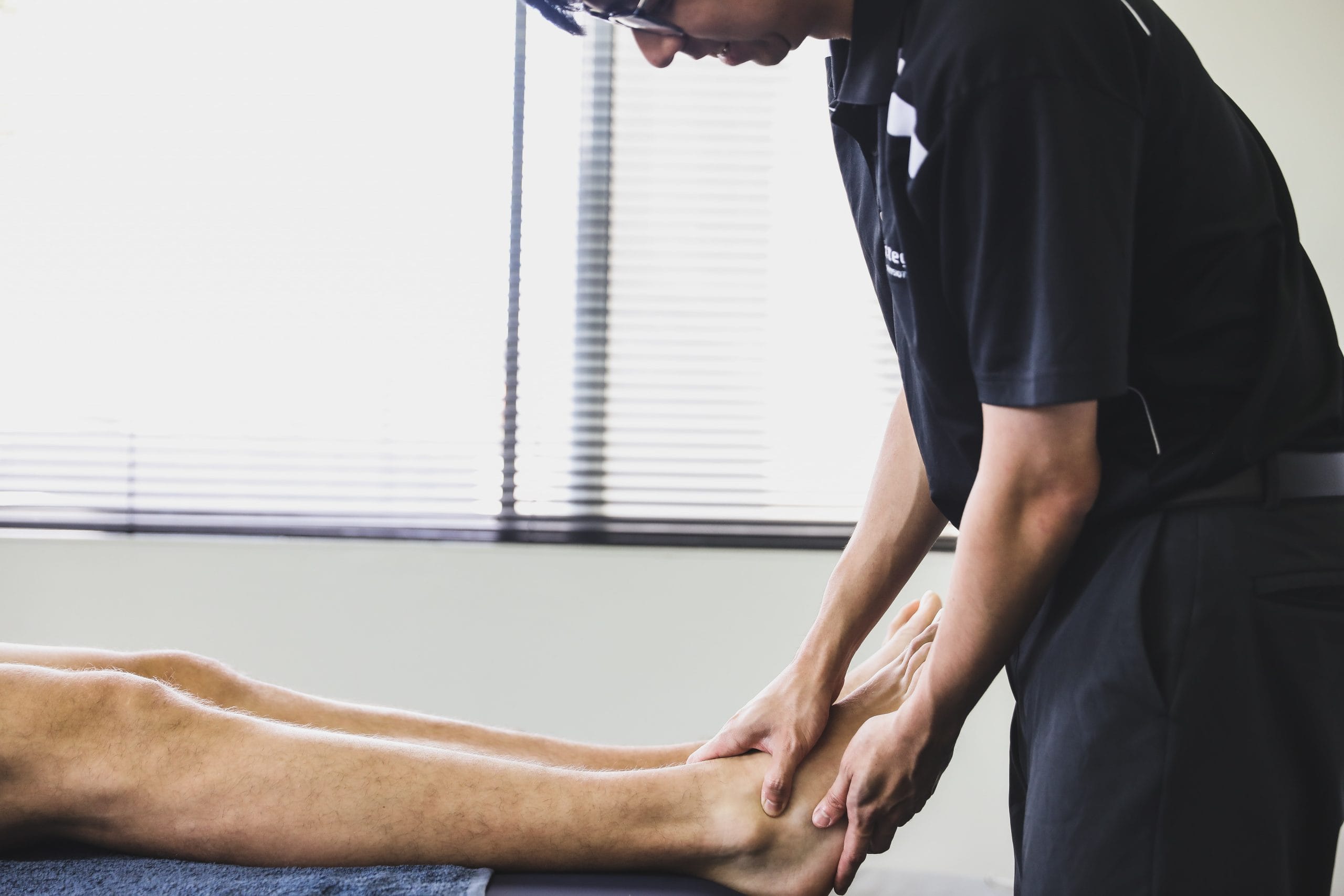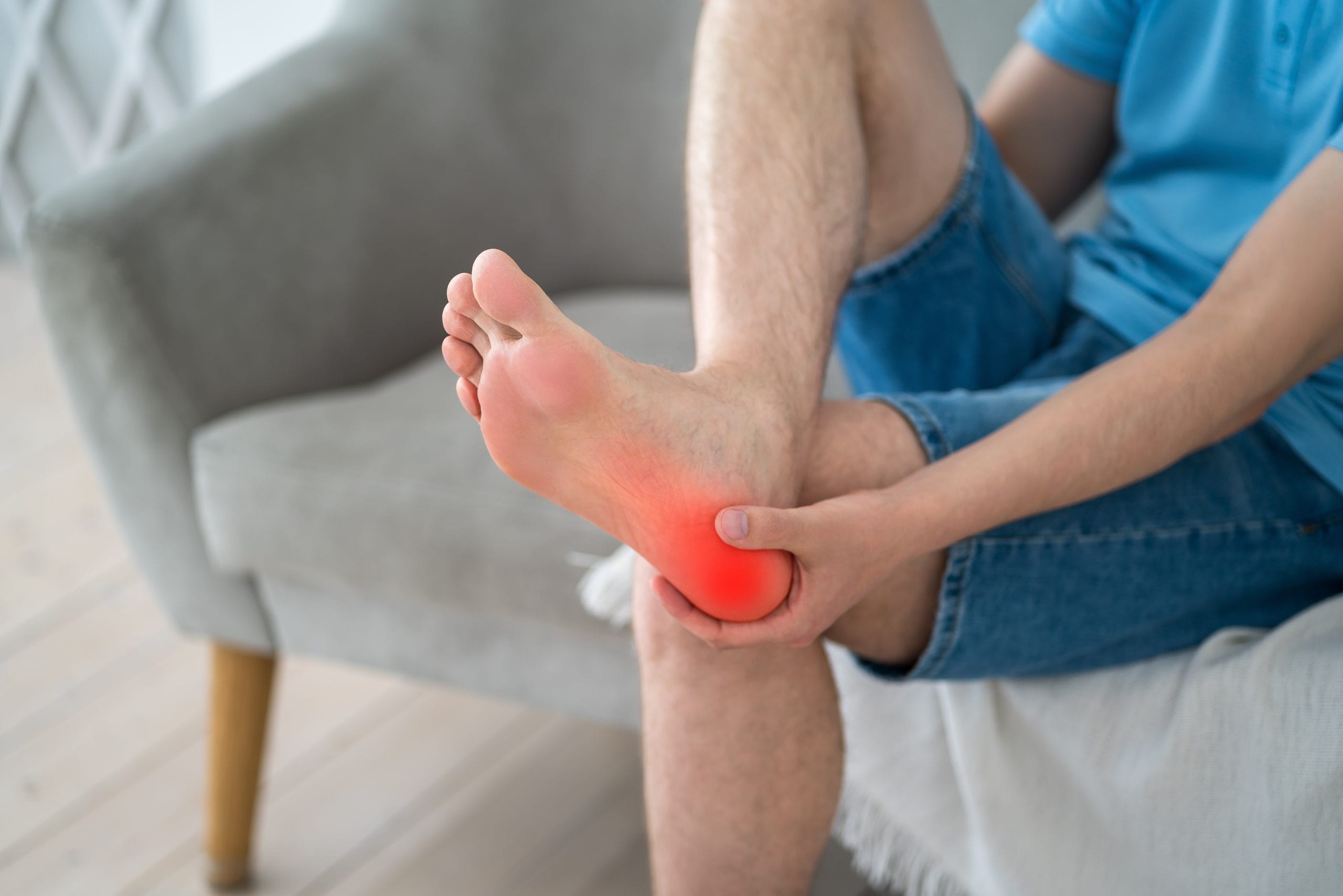
Unfortunately, if you’re reading this, you’re likely experiencing pain in your heel. But don’t worry—you’re in the right place. As experienced physiotherapists, we have the tips and tricks to help you alleviate your heel pain and get you back on your feet.
Heel pain is a common issue that can severely impact your daily life, making it difficult to walk, stand, or enjoy your favourite activities. The good news is that there are effective ways to manage and treat this pain.
From simple home remedies and targeted stretches to professional treatments and preventive strategies, we’ll explore a range of solutions to guide you on the path to relief.
Understanding Heel Pain
Heel pain can result from several different conditions. Understanding the type of heel pain you’re experiencing is crucial for effective treatment.
Common types of heel pain
- Plantar fasciitis: Inflammation or sensitisation of the plantar fascia, a thick band of tissue that runs across the bottom of your foot and connects your heel bone to your toes. Commonly causes stabbing pain that is most severe with the first steps in the morning.
- Achilles tendonitis: Inflammation or sensitisation of the Achilles tendon, which connects the calf muscles to the heel bone. Often results in pain and stiffness along the back of the heel.
- Heel spurs: Bony growths on the underside of the heel bone, often associated with plantar fasciitis. Can cause sharp pain in the heel, especially when standing or walking.
Symptoms and diagnosis
- Plantar fasciitis symptoms: Stabbing pain in the heel, especially with the first steps in the morning or after long periods of rest. The pain tends to decrease with activity but can intensify after prolonged standing or walking. You might also feel tightness in the arch of your foot.
- Achilles tendonitis symptoms: Pain and stiffness along the Achilles tendon, typically worsened with activity. Swelling and tenderness may also be present. The pain often becomes more severe after periods of intense physical activity.
- Heel spurs symptoms: Sharp, knife-like pain in the heel, particularly when standing up in the morning or after sitting for a long time. Unlike plantar fasciitis, heel spur pain can persist throughout the day and worsen with prolonged activity. Some people may feel a small, bony protrusion on their heel.

Common Causes of Heel Pain
Heel pain can arise from various factors, each contributing to the discomfort and inflammation in different ways. Here are some common causes:
- Overuse and repetitive stress
- Improper footwear
- Obesity and sudden weight gain
- High-impact activities
- Foot structure issues
Home remedies for heel pain
If you’re experiencing heel pain, several effective home remedies can help alleviate discomfort and promote healing.
Rest and activity modification
Reducing activities that put stress on your heel can help minimise pain and inflammation. Avoid running, jumping, or standing for long periods, and give your heel time to recover.
Ice therapy
Applying ice to the affected area can help reduce inflammation, sensitivity and can numb the pain. Use an ice pack wrapped in a towel and apply it to your heel for 10 minutes several times a day.
Over-the-counter pain relief
Nonsteroidal anti-inflammatory drugs (NSAIDs) like ibuprofen or naproxen can help reduce pain and inflammation. Seek advice from your pharmacist or general practitioner and always follow the dosage instructions on the packaging.
Proper footwear and orthotics
Wearing shoes that provide adequate support and cushioning can alleviate heel pain. Orthotic inserts can help distribute pressure more evenly and support the arch of your foot, reducing stress on the heel.
Stretching exercises
Incorporating specific stretches into your routine can improve flexibility and reduce tension in the foot and calf muscles.
Luckily, we have an entire blog dedicated to this topic, which covers our top 5 stretches for plantar fasciitis (however, these stretches can also help with achilles tendonitis and heel spurs!).
When To SeekProfessional Help
While home remedies can be effective in managing heel pain, there are times when visiting a physiotherapist becomes necessary. We urge that you seek help if you experience any of the following:
- Persistent or severe pain: If your heel pain is severe, constant, or not improving with home treatments, it’s best to see a professional for a thorough evaluation.
- Signs of infection or other complications: Symptoms like redness, warmth, swelling, or fever could indicate an infection or other serious conditions that require medical attention.
- Lack of improvement with home remedies: if you’ve tried various home remedies for several weeks without significant relief, a physiotherapist can help develop a personal treatment plan for your specific pain.
- Difficulty performing stretches: If you’re unable to perform the recommended stretches or are unsure whether you’re performing them correctly, a professional can provide guidance and personal adjustments to your routine.
A physiotherapist can create a treatment plan tailored to your specific needs, incorporating advanced therapies and techniques to address the root cause of your heel pain. These treatments may include physical therapy, custom orthotics, medications, injections, or even surgical interventions in severe cases.
Our best advice is to seek early intervention. This can prevent the condition from worsening and help you return to your normal activities sooner.
Want To Reduce Your Heel Pain?
If heel pain is giving you grief, let us help you get back to normal living. Understanding and addressing the root cause of your heel pain is crucial for effective relief. Home remedies such as rest, ice therapy, proper footwear, and targeted stretches can make a big difference. However, if these measures aren’t enough, seeking early intervention from one of our South Perth physios is your best bet.
Don’t let heel pain hold you back any longer. Book an appointment with Integrity Physio today and take the first step towards a pain-free life. We provide comprehensive care in plantar fasciitis treatment and other heel-related conditions, helping you achieve optimal foot health and mobility so you can get back to doing the things you love without discomfort.

